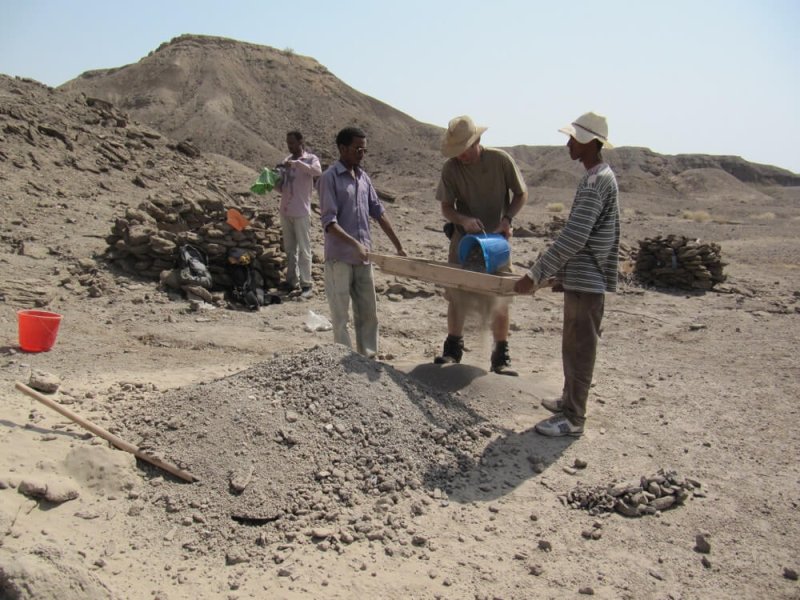Discoveries in East Africa of what may be the oldest expertly sharpened stone implements suggest that early members of the human genus, Homo, invented these tools by around 2.6 million years ago, researchers say. But their conclusions are controversial.
New finds at a site in Ethiopia called Ledi-Geraru fit a scenario in which various early Homo groups devised ways to sharpen handheld stones, assert archaeologist David Braun of George Washington University in Washington, D.C., and his colleagues. Ledi-Geraru artifacts date to between 2.58 million and 2.61 million years ago,
…
Ledi-Geraru discoveries add to an increasingly confusing picture of early stone-tool making, says archaeologist Manuel Domínguez-Rodrigo of Complutense University in Madrid. Until a detailed analysis of sediment formation at the Ledi-Geraru site is published, he is skeptical of the claim that the newly discovered artifacts were found where they were originally deposited or are as old as reported.
…
For now, scientists’ clashing positions on the reliability and implications of ancient toolmaking evidence also appear held in place, if not etched in stone.
Read full, original post: Hominids may have been cutting-edge tool makers 2.6 million years ago































